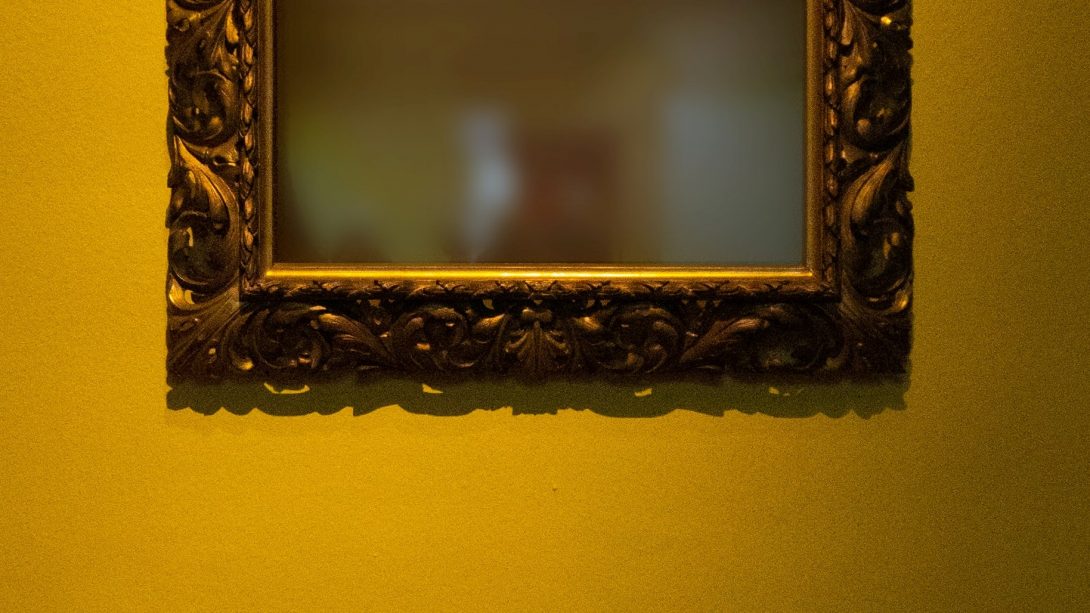At the end of the appointment, the doctor said, “Well, Sophia, I recommend you go on isotretinoin. It’s potent, but it will clear up your severe acne.” Sophia was startled. She turned her head and gazed into the mirror and admired her flawless skin. She thought, “Why would she put me on isotretinoin? My skin is flawless.” As Sophia left the parking lot slightly offended, she knew she’d never return. She preferred a more realistic doctor.
But what if Sophia lived in self-deluded denial? What if she was so emotionally scarred by her severe acne that every time she looked in the mirror she only imagined flawless skin? What if her idealistic perception of perfect skin was her coping mechanism for the insecurity of her appearance? In this case, the doctor was right and giving good care.
Most people consider themselves basically good. Most people are like Sophia. When they look in the mirror they see a good person. Not a perfect person, but a person with a pretty good heart. This natural idealistic self-perception is problematic and prevents people from coming to grips with who they really are, who Christ is, and how much they need Christ. An idealistic self-image also inhibits many believers from having a deeper sense of thankfulness for Christ, a deeper enjoyment of the gospel, and a deeper assurance in the power of Christ working in their sanctification. None of us takes our sin as seriously as we ought, and it dampens our trust in and enjoyment of Christ and our confidence in his sanctifying work. However, the more we come to grips with our depravity, the more thankful we will be for Christ and the more hopeful and eager we will be for the Spirit’s sanctifying grace and power.
Heidelberg Catechism 5 asks if you and I can keep all God’s law perfectly. It gives an accurate answer but one that is hard to admit. It says, “No, I am inclined by nature to hate God and my neighbor.” Would you say that of yourself? Are you inclined by your human nature to hate God and your neighbor? Until you can answer yes without qualification and hesitation, Christ will be of little value to you.
Borrowing from two Psalms, the Apostle Paul wrote, “None is righteous, no, not one . . . no one seeks for God . . . no one does good, not even one” (Rom. 3:10-12). Moses explained that “every intention of the thoughts of [man’s] heart [is] only evil continually” and “evil from his youth” (Gen. 6:5; 8:21). Would you agree that apart from Christ you are not good, you are a law-breaker, in fact, you are evil? Would you admit that everything you do, even as a Spirit-filled Christian, is thoroughly corrupted by sin? If you cannot bring yourself to admit this, you do not yet understand yourself, the gospel, or the infinite worth of Christ Jesus. If the mirror you’re looking into is still telling you, “Thou . . . art the fairest in the land,” or at least, “Thou art fair,” then you have yet to understand yourself, the gospel of imputed righteousness, and the infinite beauty of Christ.
God certainly created man good and in His image, but through the disobedience of Adam and Eve in the Garden, human nature became entirely corrupt and the image of God in humanity badly defaced. Every human being born outside of Eden is conceived and born in sin. In Romans 5, Paul explains that “death spread to [everyone] because all sinned” and that all men and women are condemned in their sin (Rom. 5:12, 18). Paul was clear to state in Romans 5:19, “For as by the one man’s disobedience,” that’s Adam, “the many were made sinners,” that’s everyone else. David had admitted many years before that he was “brought forth in iniquity” and conceived in sin (Ps. 51:5). Who can deny it? Our hearts confirm it! We are not essentially good, we are essentially evil and in desperate need of God’s saving grace in Christ Jesus the Savior.
Heidelberg Catechism then asks in question eight, “But are we so corrupt that we are totally unable to do any good and inclined to all evil?” And here is where many people get it wrong and in so doing miss much of the glory of Christ. Many would answer, “No. Of course, I’m not perfect, but I wouldn’t say I’m ‘totally unable to do any good’ or that I’m ‘inclined to all evil.’ I do some good stuff. I’m not evil.” And this is the self-righteous sentiment that prevents so many people from finding comfort and delight in Christ. Their mirror is still telling them they are fair which prevents them from seeing, at least as they ought to see, the much fairer One. When the mirror of God’s law shows us our ugliness and describes the much fairer One, then we have the perspective to love and admire the fairer One. Heidelberg eight gives this more Biblical answer: “Yes, unless we are regenerated by the Spirit of God.” Unless the Holy Spirit regenerates us or gives, we are so corrupt that we are totally unable to do any good, anything that pleases God, in fact, we are inclined to all evil. However, when we are regenerated, given a new heart, and united to Christ by true faith, we are a new creation as Paul describes in 2 Corinthians 5:17. In Christ, you and I are new creations, and because of Christ’s merits credited to us, God counts us as righteous and we please God. The Holy Spirit in us compels us to love and good works which truly please God because they are done in solidarity with God’s perfect Son. As Luther put it, we are simultaneously justified and sinner, or in other words, saint and sinner, so there is a war within us, but we are new and being made new to the glory and worship of God.
The Holy Spirit will help us to see our sinfulness, but He will also help us see the much fairer One Jesus Christ. As you see your sin more and more, make sure that you look to the gospel more and more to see the beauty of Christ, and in his beauty, you will find your beauty.



